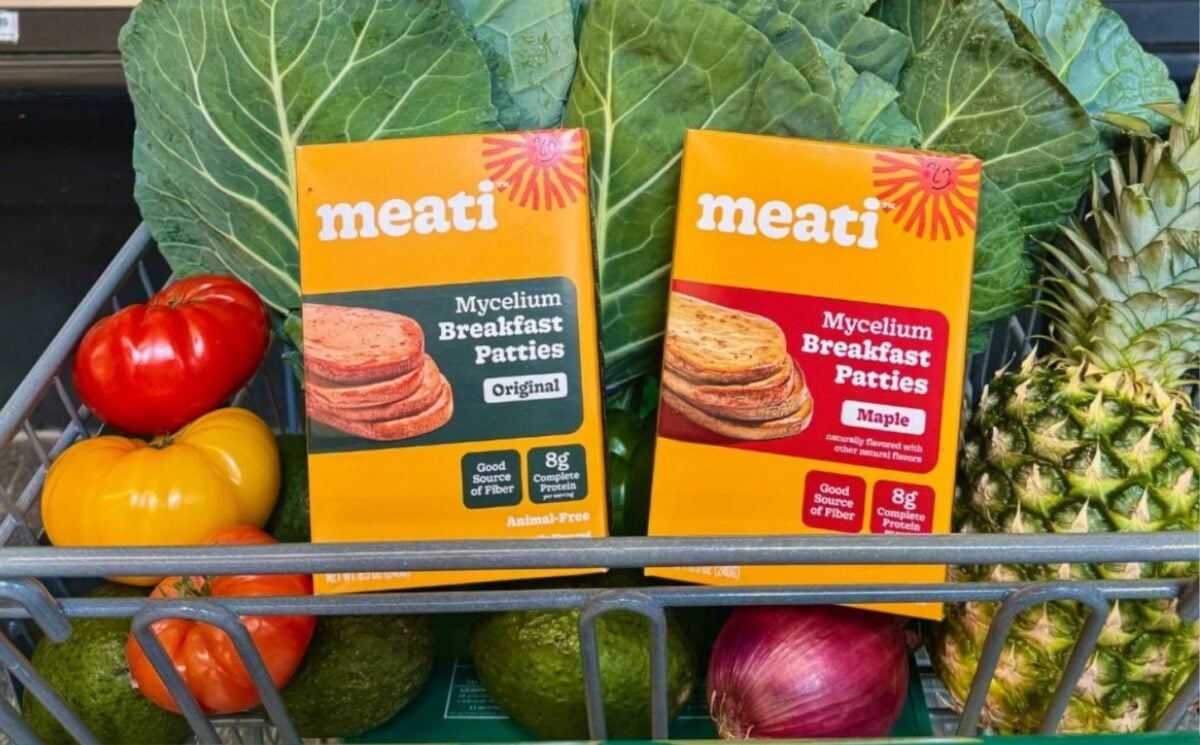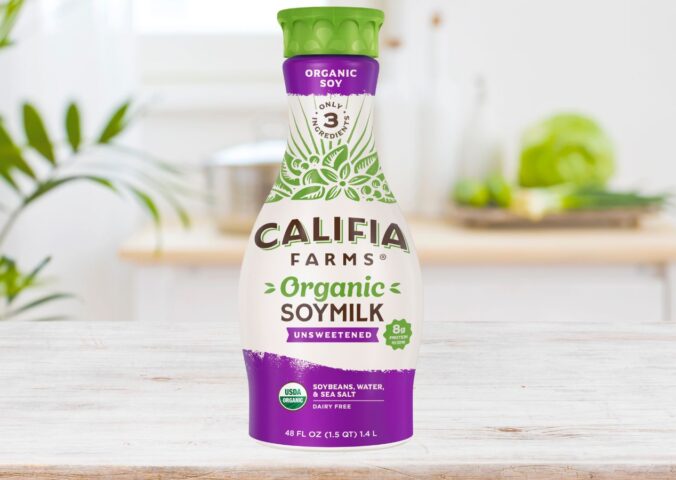Meati Foods has launched mycelium-based, sausage-style “breakfast patties” at Sprouts Farmers Market in the US.
The Meati Breakfast Patties are available in two different flavors: Original and Maple. The patties feature eight grams of protein and four grams of fiber per portion, with zero saturated fat and zero cholesterol. According to the company, the patties are 98 percent mycelium.
“Our brand narrative is relatively simple, because the benefits of our products are so strong – they are delicious, nutrient-packed, and clean,” said Meati CEO Phil Graves, in an interview with Food Navigator. “Meati’s breakfast patties are taking us all back to the feeling you got from eating sausage on those slow Saturday mornings growing up.”
The two new Breakfast Patties join Meati’s existing range, which includes Crispy Cutlets, Classic Steaks, Classic Cutlets, and Carne Asada steaks. Meati Breakfast Patties are available in the freezer section of 280 Sprouts Farmers Market locations across the US.
“Our breakfast patties will be available exclusively at Sprouts to start, but we already have other retailers around the nation who are eager to add our breakfast patties to their offerings,” added Graves. He described the product as a “significant growth avenue.”
Read more: V-Label International Launches New ‘C-Label’ For Cultivated Meat
Mycelium, meat, and ultra-processed foods

Mycelium is a fungal structure made of many thread-like strands. It is a versatile material with wide application in commercial, construction, and agricultural settings, in addition to food production. As an alternative protein, mycelium is nutritious, robust, and low-impact.
Graves told Food Navigator that his product uses 89 percent fewer greenhouse gas emissions (GHGs) compared to beef steak, and 73 percent less water.
The company “grows” its mycelium with similar processes to those used in beer and cheese-making. In addition to containing plenty of protein, Meati has said that its mycelium-based meat also contains iron, B vitamins, zinc, and other essential nutrients.
Read more: ‘Fake News About Fake Meat’: New Guide On Alternative Proteins






